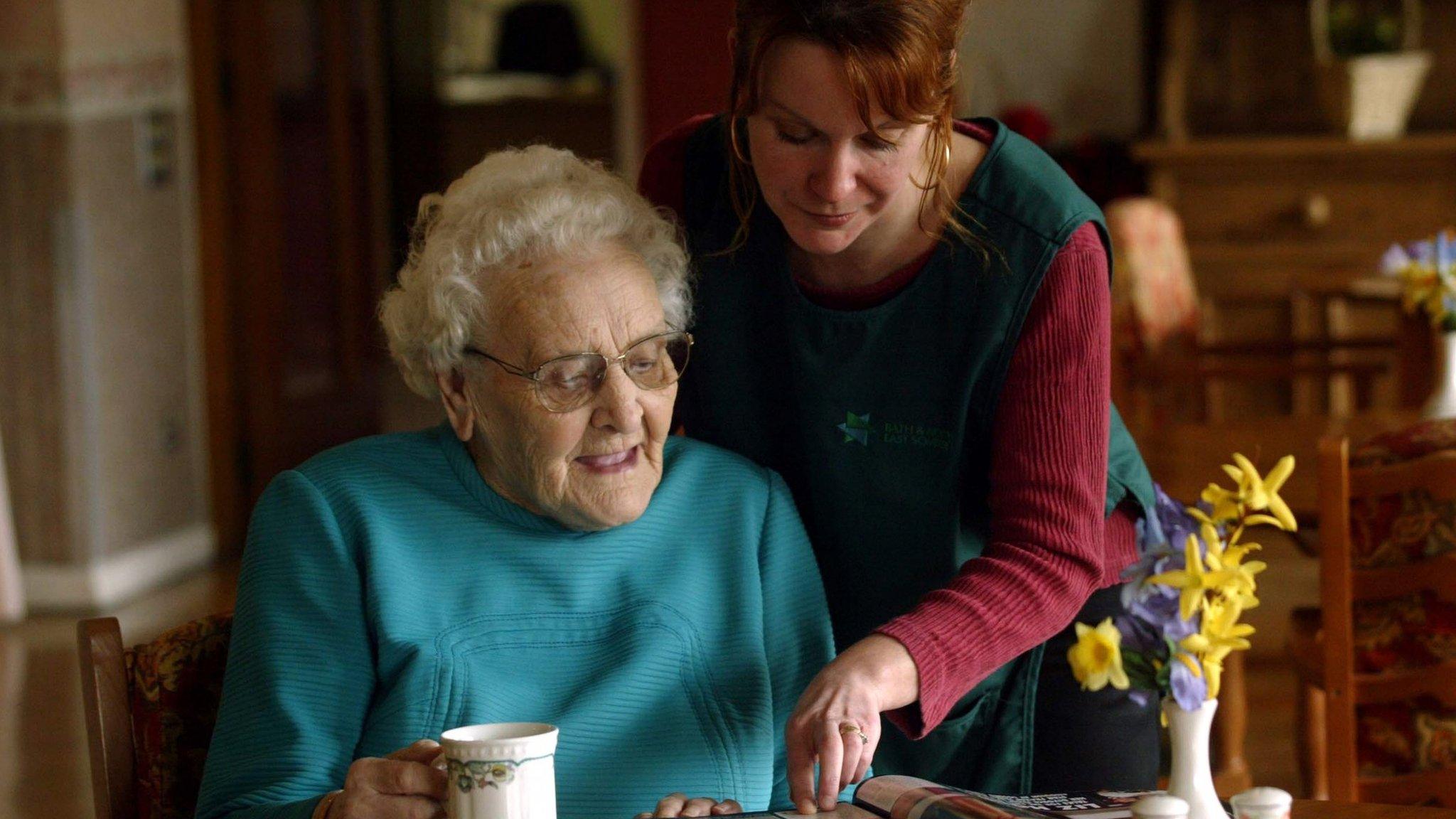Health secretary: I have sleepless nights over NHS
- Published
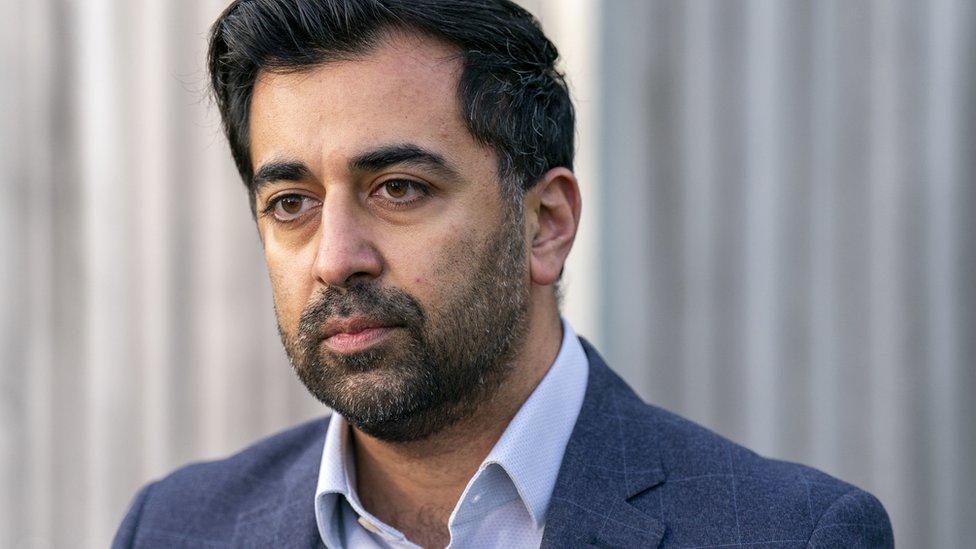
Scottish health secretary Humza Yousaf said he has sleepless nights over the NHS in Scotland as it faces the "most significant pressure" in its history.
Mr Yousaf told BBC Scotland he was spending "every waking moment possible" trying to see what support government could give.
The minister has had calls to resign as the NHS faced a challenging winter.
He was speaking on the two-year anniversary of the first Covid-19 vaccination being given in Scotland.
More than 14.9 million doses have been administered since then, with the initial push to reach vulnerable people being the biggest logistical operation Scotland had seen since World War Two.
Cases of the virus were now "fluctuating at a relatively high level" but the vaccination had been "the single biggest game-changer" in tackling the danger Covid can present, the health secretary said.
NHS Scotland faces multiple challenges this year as well as the usual winter increases in patients.
As the health service recovers from the pandemic, waiting lists and waiting times have been increasing to record levels, staffing pressures are widespread, industrial action is being threatened and the Scottish government has taken "oversight" of a health board.
Mr Yousaf told BBC Radio's Good Morning Scotland programme the NHS "would cope but it will be extremely challenging".
"The health service is under probably the most significant pressure it has ever been under in its 74-year existence," he said.
"I've many sleepless nights, not figuratively speaking but quite literally speaking.
"We're still recovering from the pandemic, the effects of the pandemic, we're into winter - frankly if you're not concerned then you're not doing your job rightly."
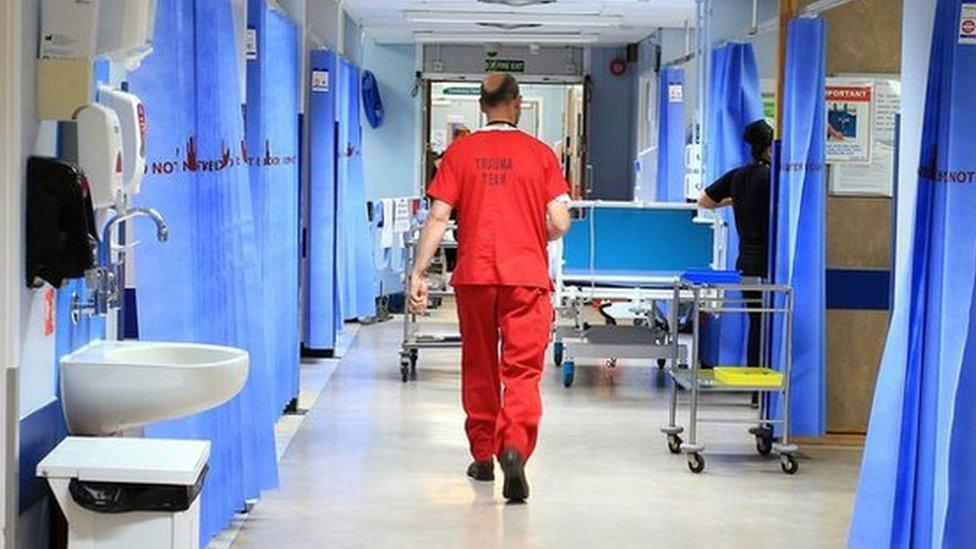
Mr Yousaf added: "I can give your listeners a guarantee that I'm spending every single waking moment I possibly can to see what support we can give both healthcare and but also social care.
"We need to invest in [social care] in order to free up some of that capacity through the back door."
Some problems faced by patients this winter are caused by delayed discharge - when a patient has received treatment but has to wait to leave hospital, possibly while a care home place is found or support at home is put in place.
This causes a backlog in the system where patients cannot be moved through the hospital, and for patients arriving in Accident and Emergency department this can cause long delays.
The national target is for 95% of patients to be admitted to hospital, external or discharged within four hours of arriving at A&E.
Last week, across Scotland only 61.9% were being seen within that timeframe.
Scottish Conservative leader Douglas Ross highlighted this week's "worst ever" accident and emergency waiting time figures at First Minister's Questions.
Nicola Sturgeon admitted that the performance was "not where we want it to be" but said Scotland's A&E units were "the best performing in the UK".
'Staff morale has been horrendous'
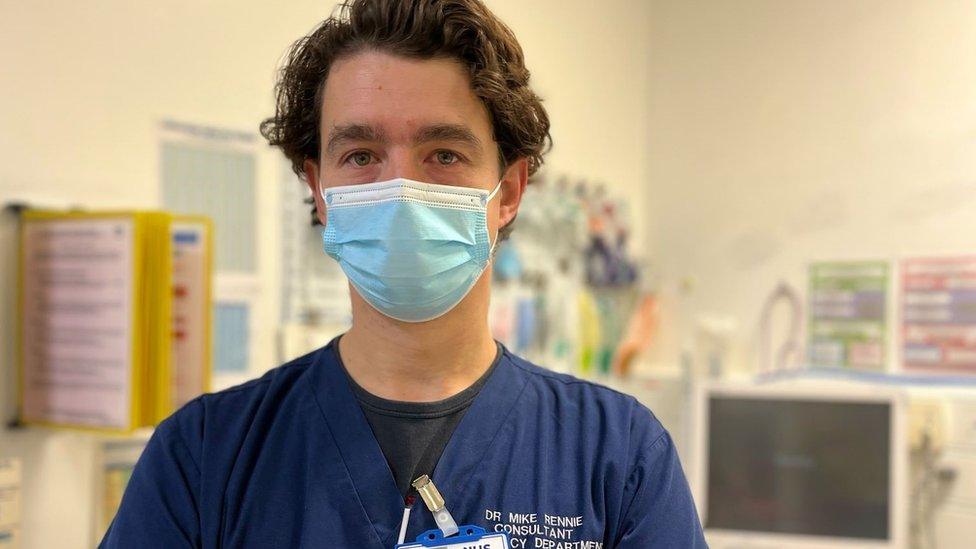
A&E consultant Mike Rennie says delays can create a risk for patients
At the busiest A&Es in Scotland - Edinburgh Royal and Glasgow QEUH - barely four in 10 are dealt with inside four hours but even at the better-performing hospitals they are feeling the pressure.
At the A&E department in Raigmore Hospital in Inverness, 73% of patients are dealt within the target time, but staff said the situation was "appalling".
Consultant Michael Rennie told BBC Scotland it was now typical to see an increase in ambulances queued outside.
"When we are at capacity and we can't move patients out, it creates a risk for patients," he said.
"There have been times when we have not had spare [resuscitation] beds and yet we've had patients arrive - you hear a screech in the car park and there's somebody brought out the car critically unwell and in cardiac arrest - and you struggle to find a place to bring that patient in to."
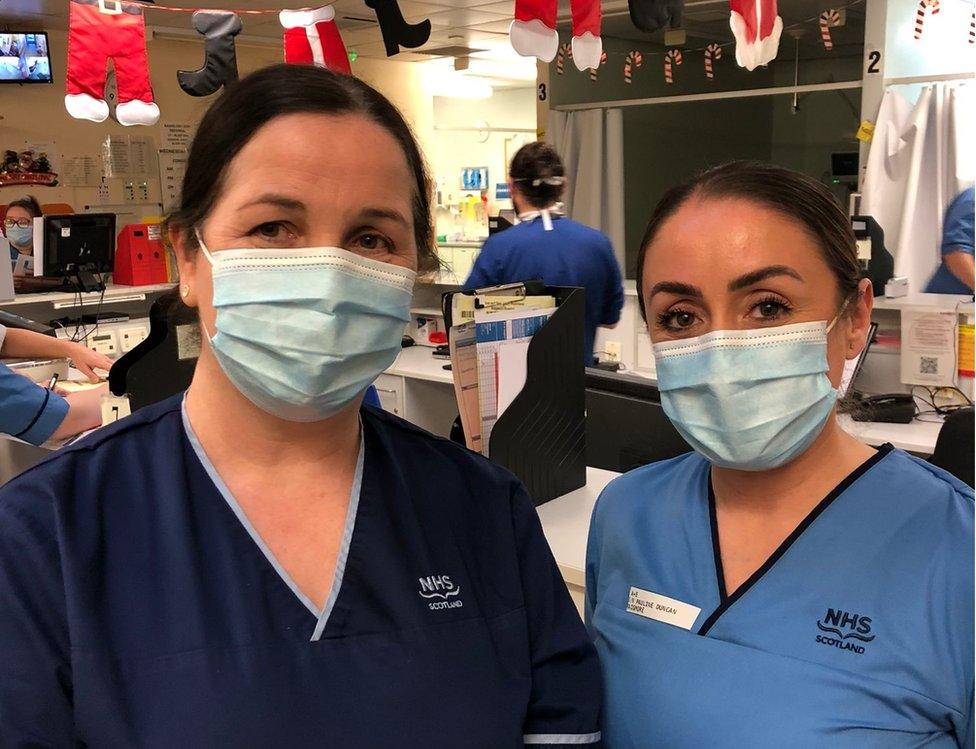
Nurses Heather Johnstone and Pauline Duncan worry they are not always able to give the best care to patients
Heather Johnstone, an A&E senior charge nurse at Raigmore who has been working in the NHS for 30 years, said: "There's patients waiting for up to 24 hours, and we have had patients waiting over 24 hours.
"That's appalling for the staff that are having to look after these patients and seeing that they are not getting adequate care, and it's that level of empathy - you feel that you are responsible for them but you've not got any ability to change any of the circumstances surrounding their stay."
She added: "We have national guidelines and we know we're not able to fulfil them.
"They are based on patient care and quality care, and if you know these standards aren't being met it does make you feel as if the spotlight is now on us, that we're not able to perform, but it's all the circumstances outwith our control."
Staff nurse Pauline Duncan said: "Staff morale has been horrendous just with the sheer volume of what we've been dealing with.
"To feel you're giving the patient sub-standard care just with what we're dealing with."
'Call 999 in an emergency'
This winter the health secretary urged people to consider when and how they access the health service.
"The message coming from health boards is, if it's an emergency, if it's life-threatening, critical, then don't hesitate for a second to phone 999," Mr Yousaf said. "If it's not that, then know the other avenues that are available."
He said people could use out-of-hours centres, contact their GP or call NHS 24 instead of going to A&E.
The health secretary also said he understood parents were concerned about strep A after children in other parts of the UK died. He said his own three-year-old child had been unwell last week.
Mr Yousaf said parents should be aware of the symptoms of the usually mild infection and added that there was no shortage of antibiotics in Scotland.
Related topics
- Published6 December 2022
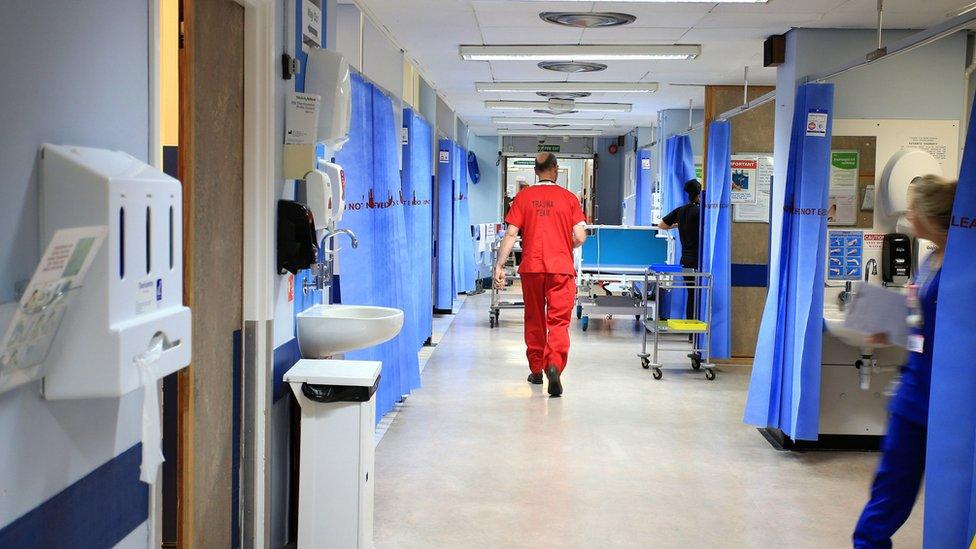
- Published7 December 2022

- Published30 November 2022
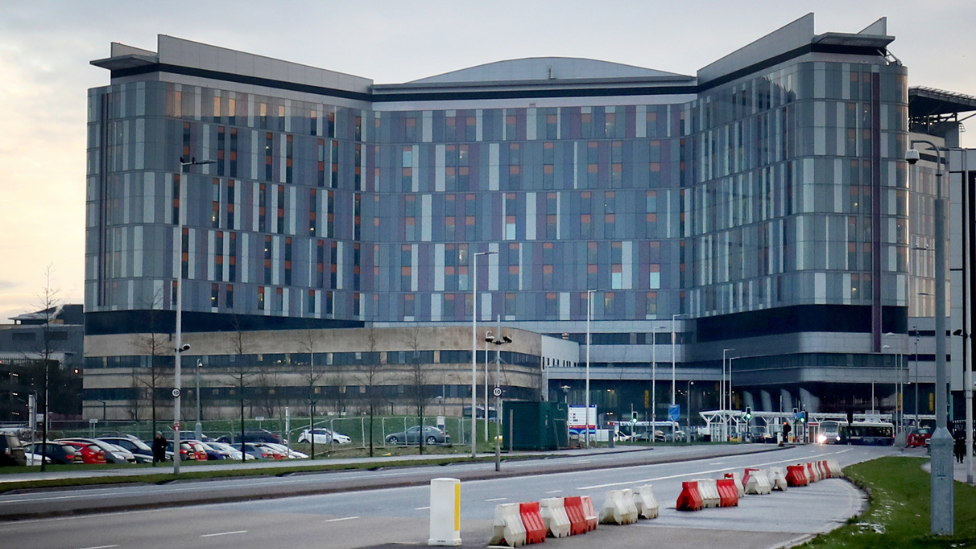
- Published29 November 2022

- Published23 November 2022
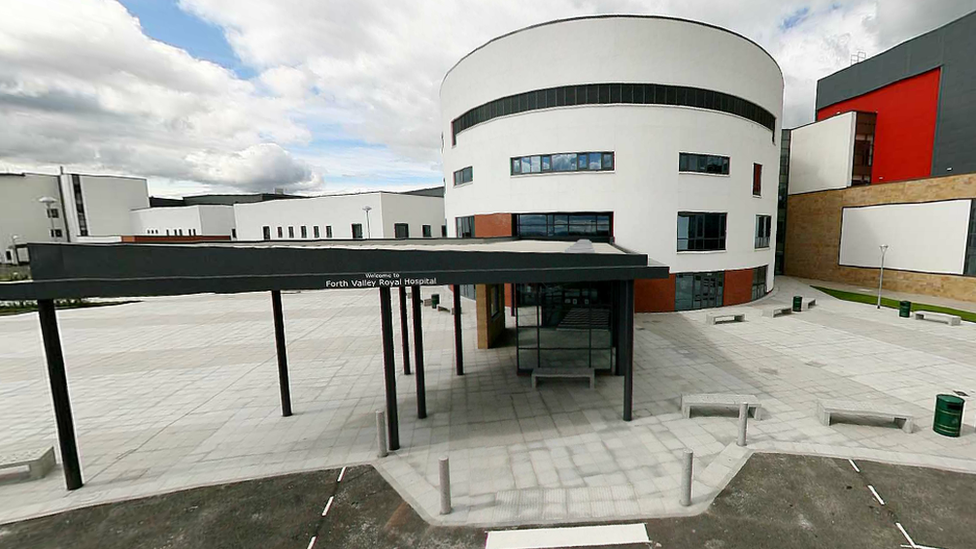
- Published8 November 2022
